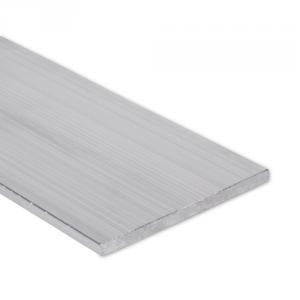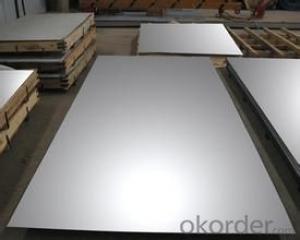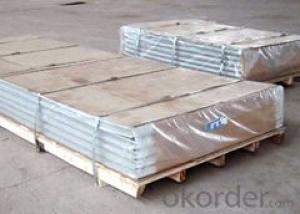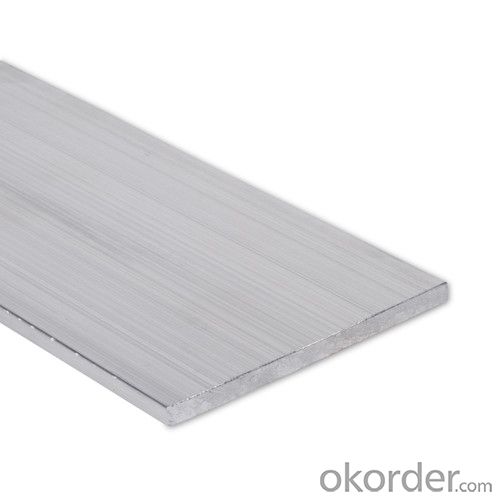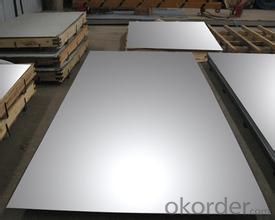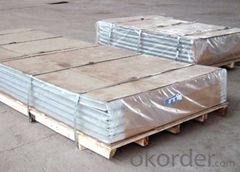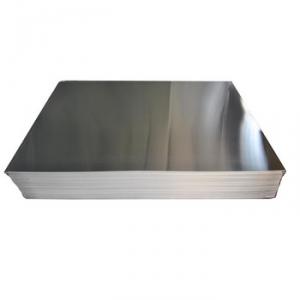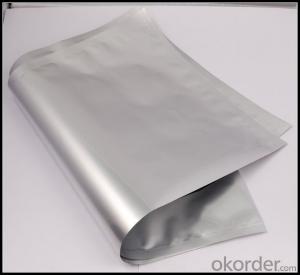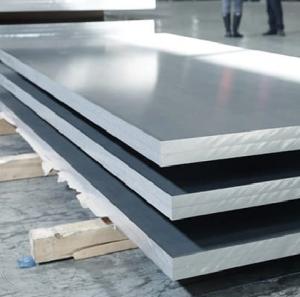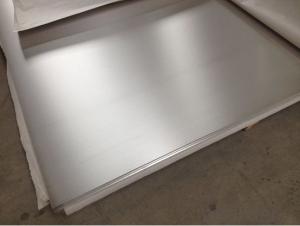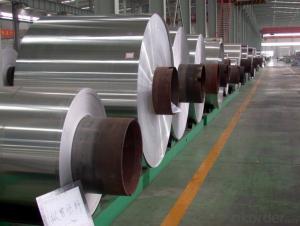aluminium thick plates 7075/2024/6061/5052
- Loading Port:
- Shanghai
- Payment Terms:
- TT or LC
- Min Order Qty:
- 5 m.t.
- Supply Capability:
- 5000 m.t./month
OKorder Service Pledge
OKorder Financial Service
You Might Also Like
Application:
Mainly used insigns, billboards, building exterior decoration, bus body, high-rise buildings and factories wall decoration, kitchen
sink, lamp, fan leaves, with pieces of electronic, chemical equipment, sheet metal processing parts, deep drawing or spinning
hollowware, welding parts, heat exchangers, bell surface and disk, plate, kitchenware, decorations, reflective devices, ect.
Size of container:
20ft GP:5898mm(length) x 2352mm(width) x2393mm(high),about 24CBM,23MTS
40ft GP:12032mm(length) x 2352mm(width) x 2393mm(high),about 54CBM,27MTS
40ft HG:12032mm(length) x 2352mm(width) x 2698mm(high),about 68CBM,27MTS
FAQ:
1. What is the form of payment?--Normally 30% TT, L/C
2. Type of quotation?---FOB, CFR, CIF
3. Port of loading?---Shanghai port,Tianjin Port, Qingdao Port ect
4. Delivery time?---30 -50 days after client’s deposit
- Q: How do you store aluminum sheets?
- To store aluminum sheets, it is important to consider their size, weight, and overall condition. Here are some steps you can follow: 1. Choose a suitable location: Find a dry and well-ventilated area with stable temperatures, preferably indoors. This will help prevent moisture and humidity from causing corrosion or damage to the aluminum sheets. 2. Protect against moisture: Use plastic or moisture-resistant sheets to wrap each aluminum sheet individually. This will create a barrier against moisture and prevent any potential corrosion. Avoid using materials that may react with aluminum, such as acidic or alkaline substances. 3. Organize and stack: If you have multiple aluminum sheets, consider organizing them based on their size, thickness, or other relevant factors. This will make it easier to access specific sheets without disturbing the entire stack. When stacking the sheets, place larger and heavier ones at the bottom to avoid any potential damage. 4. Utilize racks or pallets: If you have a larger quantity of aluminum sheets, using racks or pallets can provide additional support and stability. Ensure the racks or pallets are strong enough to handle the weight and are designed to prevent any deformation or bending of the sheets. 5. Label and document: It is helpful to label each sheet with relevant information such as size, thickness, or any specific details. Additionally, keeping a detailed inventory or catalog of your aluminum sheets can help you easily locate and retrieve specific ones when needed. 6. Regular inspection: Periodically inspect your stored aluminum sheets to ensure they remain in good condition. Look for signs of corrosion, damage, or any other issues that may require immediate attention. By following these steps, you can effectively store aluminum sheets, protecting them from damage and ensuring their longevity.
- Q: Is it possible to recycle aluminum sheets multiple times?
- <p>Yes, aluminum sheets can be recycled again and again. The recycling process for aluminum is highly efficient, and it can be recycled indefinitely without losing any quality. This is due to the fact that aluminum retains its properties even after multiple recycling cycles. Each time aluminum is recycled, it can be melted down and reformed into new products, making it a sustainable and environmentally friendly material.</p>
- Q: This aluminum is on a mobile home. I trying to repaint it and there is alot of areas were rust has ate the metal away. Especially in the seams. How can I get rid of the rust that already exists and stop it from coming back.
- Aluminum doesn`t rust. This is probably tin. If a magnet sticks to it, treat and paint as you would steel.
- Q: What are the different surface patterns available for aluminum sheets?
- Some of the different surface patterns available for aluminum sheets include smooth, brushed, embossed, and hammered.
- Q: What are the dimensions of standard aluminum sheets?
- Aluminum sheets usually measure 4 feet by 8 feet as a standard. Nevertheless, it is essential to acknowledge the availability of aluminum sheets in diverse thicknesses, spanning from thin gauge sheets to thicker plates. The thickness of standard aluminum sheets can fluctuate from 0.025 inches to 0.25 inches or even greater. Moreover, aluminum sheets can be tailored and adjusted to distinct sizes and shapes according to specific project prerequisites.
- Q: Is it possible to use aluminum sheets as a material for exterior siding or cladding on buildings?
- <p>Yes, aluminum sheets are commonly used for siding or cladding due to their durability, lightweight, and resistance to corrosion. They are low maintenance, can be easily shaped, and come in various colors and finishes. Aluminum's resistance to weathering and its ability to withstand temperature extremes make it a popular choice for both residential and commercial buildings.</p>
- Q: This question asks for methods to maintain and repair aluminum sheets once they have been installed.
- <p>To maintain and repair aluminum sheets after installation, follow these steps: Regularly clean the surface with a soft cloth and mild detergent to remove dirt and grime. Avoid abrasive materials that can scratch the surface. For minor scratches or dents, use aluminum filler or touch-up paint that matches the sheet's color. Apply the filler or paint carefully, following the manufacturer's instructions. For more severe damage, consider hiring a professional to assess and repair the damage to ensure structural integrity. Always check for any signs of corrosion and address them promptly to prevent further damage. Regular maintenance will prolong the life of aluminum sheets and keep them looking their best.</p>
- Q: How to press multilayer aluminum sheets (aluminum sheet's thickness: 0.2mm) together and keep them inseperate after pressing?
- resistance welding is a welding method that pressing the materials to be welded in an area between two poles and switching on current. the current will go through the contact surface and agjacent area, producing resistance heat effect which will heatthe materials into melting or plastic state and make the materials be welded together.
- Q: Need to polish some small aluminum tubing, preferably to chrome like shine. What tools do I need? Thinking about buying 6 bench grinder, buffing? wheels and polish compound... Does it sound about right?
- I've done all sorts of tests on this topic and am using a polishing kit that was meant for plastic, but on aluminum, but after all the pads coarse to fine (wet) I found that it's better to use the last pad again but dry, rather than using the while liquid paste they propose. Polishing dry or wet makes a difference, and polishing Al is not the same as polishing a plastic. It's a tricky recipe, you can dull your Al easily, and I never got it shiny like a mirror so I want to see other answrs
- Q: Can aluminum sheets be used for solar panel applications?
- Yes, aluminum sheets can be used for solar panel applications. Aluminum is a popular choice for solar panel frames and mounting systems due to its lightweight, strength, and corrosion resistance properties. It is also easily recyclable, making it an environmentally friendly option. Aluminum sheets provide structural support and stability to solar panels, ensuring they can withstand various weather conditions and last for a long time. Additionally, aluminum's high thermal conductivity helps dissipate heat generated by the solar panels, improving their overall performance and efficiency.
Send your message to us
aluminium thick plates 7075/2024/6061/5052
- Loading Port:
- Shanghai
- Payment Terms:
- TT or LC
- Min Order Qty:
- 5 m.t.
- Supply Capability:
- 5000 m.t./month
OKorder Service Pledge
OKorder Financial Service
Similar products
Hot products
Hot Searches
Related keywords
